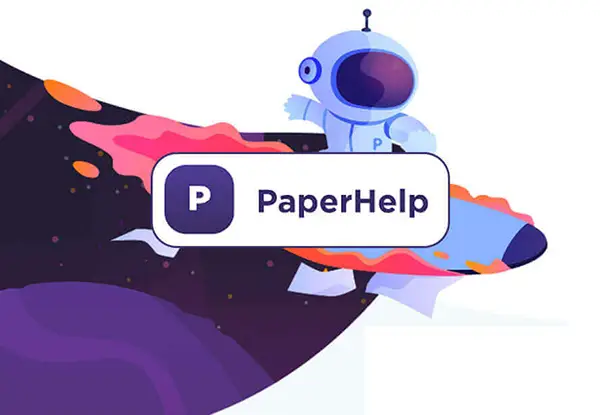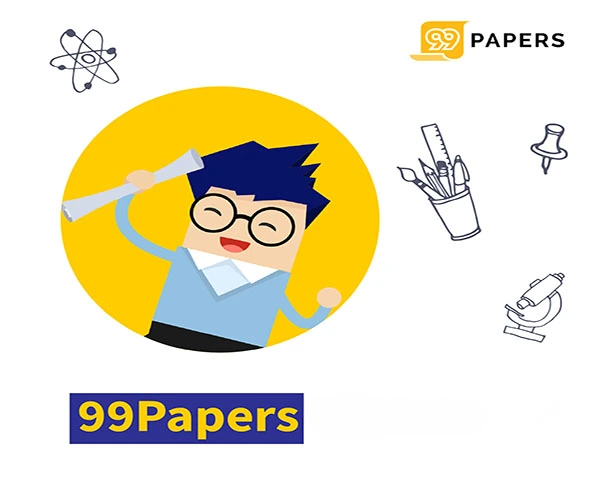When it comes to crafting a compelling essay, the opening lines set the tone for the entire piece. This is where the concept of a "hook" comes into play. A well-written hook can capture your reader's attention and encourage them to continue reading. We will explore the different types of hooks for essays and how they can effectively draw in your audience. Whether you're working on a persuasive piece or a narrative essay, understanding how to engage your readers from the start is crucial.
Before diving into the details, it's essential to consider the various types of essays out there. From descriptive and analytical to types of argumentative essays, each format requires a unique approach and a tailored hook. For instance, while a rhetorical question might serve as an excellent introduction for an argumentative essay, a vivid description may work better for a narrative piece. Services like EssayService can provide valuable guidance and resources for students looking to refine their writing techniques.
If you're unsure about how to get started, platforms such as Grademiners offer insights into the structure and composition of essays, helping you understand how to incorporate effective hooks into your writing. As we delve deeper into the subject, you'll find that the right hook can not only enhance your essay's appeal but also strengthen your overall argument and ensure that your message resonates with your audience.
Types of Hooks for Essays That Capture Attention
When writing an essay, capturing your reader's attention from the very first sentence is crucial. A well-chosen hook can entice your audience to keep reading and engage with your content. There are various types of hooks for essays that you can utilize, depending on the tone and purpose of your writing. We will explore these types and how they can enhance your essay.
Using extraessay or grademiners can provide you with examples and inspiration on how to create effective hooks for your essays. Whether you're writing a personal narrative or an argumentative piece, knowing the different methods to grab attention can make a significant difference. Below, we outline some popular types of hooks that you can implement in your essays.
Popular Types of Hooks
- Questions: Starting with a thought-provoking question can stimulate curiosity and encourage readers to ponder the topic further.
- Quotes: Incorporating a relevant quote from a well-known figure can add credibility and set the tone for your essay.
- Anecdotes: Sharing a brief personal story can help make your argument relatable and engaging.
- Statistics: Presenting surprising statistics can shock readers and draw attention to the importance of the topic.
- Bold Statements: Making a strong statement can provoke discussion and elicit a reaction from your audience.
When considering the best types of argumentative essay hooks, think about what will resonate most with your audience. The aim is to craft a hook that not only captures their interest but also smoothly transitions into the main points of your essay.
| Type of Hook | Example |
|---|---|
| Question | “What if you had one chance to change the world?” |
| Statistic | “Did you know that 60% of the world’s population lacks access to clean water?” |
| Quote | “In the words of Albert Einstein, ‘Imagination is more important than knowledge.’” |
| Anecdote | “Last summer, I found myself stranded on a deserted island, leading me to reflect on survival and resilience.” |
Utilizing the right types of hooks can significantly enhance your essay's effectiveness. Whether you choose to use a surprising statistic or a compelling anecdote, remember that the goal is to engage your reader right from the start.
Understanding the Importance of Hooks in Essay Writing
Hooks are essential elements in essay writing that capture the reader's attention right from the start. A well-crafted hook not only piques interest but also sets the tone for the entire essay. Whether you are writing a narrative, descriptive, or argumentative piece, understanding what types of hooks for essays work best can significantly enhance your writing. Tools such as essayservice and grademiners can provide guidance on creating effective hooks tailored to various essay types.
When considering what types of essays are there, it is vital to recognize that each type might require a different kind of hook. For instance, a personal narrative might benefit from an anecdotal hook, while an argumentative essay may need a shocking statistic or a provocative question to engage readers. In this context, exploring the different types of argumentative essay hooks becomes crucial to effectively presenting your argument.
Types of Hooks for Essays
- Question Hook: Starts with a provocative question that draws the reader in.
- Statistic Hook: Uses an interesting statistic to emphasize an important point.
- Quote Hook: Begins with a relevant quote from a famous individual to provide authority.
- Statement Hook: Makes a bold or surprising statement that captures attention.
- Anecdotal Hook: Shares a brief story to create a personal connection.
Employing the right hook in your writing can significantly enhance the engagement and effectiveness of your essay. By understanding the types of hooks for essays and recognizing the nuances of different types of argumentative essay structures, writers can effectively draw their readers in and ensure that their arguments are compelling from the very first sentence.
Different Types of Hooks: Questions, Quotes, and Anecdotes
When it comes to writing an essay, the introduction plays a crucial role in capturing the reader's attention. One effective way to achieve this is through hooks. Hooks are engaging statements or questions that draw readers in, making them curious about what follows. There are various types of hooks that can be employed, depending on the topic and the type of argumentative essay being written. We explore three popular types of hooks: questions, quotes, and anecdotes.
Each hook serves a unique purpose and can set the tone for the entire essay. Services like grademiners, extraessay, and essayservice often emphasize the importance of starting strong. Understanding how to use these different types of hooks can significantly enhance your writing and keep your audience engaged.
Types of Hooks
Questions: A thought-provoking question can stimulate curiosity and encourage readers to think critically about the topic. For example, "What types of essays are there, and how can they shape our understanding of complex issues?" This type of hook invites the audience to consider their own viewpoints.
Quotes: A powerful quote from a respected figure can lend credibility and interest to the essay. For instance, starting with a quote such as, "The only limit to our realization of tomorrow is our doubts of today" by Franklin D. Roosevelt can inspire readers to engage with your arguments on a deeper level.
Anecdotes: Personal stories or anecdotes can create an emotional connection with your audience. By sharing a relevant experience, you can make your essay relatable and more compelling. For example, recounting a moment that highlights the importance of the essay's subject can draw readers in effectively.
Incorporating various types of hooks in your essays can greatly influence how your work is received. By using questions, quotes, and anecdotes wisely, you can create a strong opening that sets the stage for your arguments and keeps readers interested from the first sentence.
How to Choose the Right Hook for Your Essay Topic
Choosing the right hook for your essay is crucial as it sets the tone and engages your readers from the very first line. A compelling hook can make your essay stand out, prompting your audience to continue reading. There are various types of hooks for essays that you can consider, depending on your topic and the type of essay you are writing.
When considering what types of essays are there, it's essential to match your hook with the essay's purpose. For instance, if you are writing a types of argumentative essay, a startling statistic or a provocative question could effectively draw your readers in. On the other hand, a narrative hook or an anecdote might work better for a personal essay.
Exploring Different Hooks
Here is a list of some common types of hooks and their potential uses:
- Question Hook: Start with a question that encourages readers to think and reflect.
- Quote Hook: Use a relevant quote that captures the essence of your topic.
- Statistic Hook: Present surprising facts or figures that grab attention.
- Anecdotal Hook: Share a brief story or personal experience related to your topic.
- Statement Hook: Make a bold statement or claim to provoke interest.
When writing your essay, consider using essay services like extraessay for guidelines and examples that can help refine your hooks. By understanding the various types of hooks for essays and tailoring them to the specific type of essay you are working on, you can significantly enhance the effectiveness of your writing.
Crafting Effective Hooks: Tips and Techniques
Creating a compelling hook is essential when writing an essay. A hook serves as the first impression, capturing the reader's attention and encouraging them to continue reading. With the right type of hook, you can set the tone for your essay and make it more engaging. Understanding the various types of hooks for essays is crucial for any writer, whether you're using an essayservice or crafting your piece from scratch.
There are many ways to initiate an essay, and depending on the content, certain hooks may work better than others. Some popular strategies include asking a provocative question, sharing a startling fact, or presenting a relevant quote. Once you know what types of hooks align best with your essay, you can write with greater confidence and clarity.
Types of Hooks You Might Consider
- Question Hook: Engaging the reader by posing a thought-provoking question.
- Fact or Statistic Hook: Presenting an intriguing fact that surprises or informs the reader.
- Quote Hook: Beginning with a relevant quotation that sets the stage for your argument.
- Story Hook: Sharing a brief anecdote or story that relates to the main theme.
- Statement Hook: Starting with a bold statement or claim that provokes thought.
Utilizing resources such as extraessay and grademiners can be beneficial when exploring different types of essays. Many students wonder, what types of essays are there? The answer is vast, ranging from argumentative and persuasive essays to expository and descriptive ones. Each type may benefit from different hooks, so it’s key to tailor your approach accordingly.
An effective hook can significantly enhance your essay's impact. By utilizing the appropriate type of hook and resources available, like those offered by various essay services, you can craft an engaging introduction that captivates your audience and sets the stage for a compelling argument.
Mastering the Art of Essay Typing
Writing an essay involves a series of well-defined steps that require careful planning and execution. Whether you're drafting an academic paper or a personal narrative, understanding what types of essays are there is crucial to selecting the appropriate structure and style for your writing. From informative and persuasive to descriptive and narrative essays, each type has specific characteristics that guide your approach.
Incorporating effective types of hooks for essays can significantly enhance your introduction, capturing the reader's attention right from the start. Crafting an engaging opening sets the tone for the rest of your essay, making it essential to choose a hook that resonates with your topic and audience.
Tips for Successful Essay Typing
- Follow a clear outline: Create a structured outline to organize your thoughts and arguments effectively.
- Utilize reliable resources: Consider using services like essayservice, extraessay, or grademiners for additional guidance and support.
- Revise and proofread: Always review your work to eliminate errors and improve clarity.
- Seek feedback: Don’t hesitate to ask peers or teachers for constructive criticism.
By mastering these steps, you can become a more effective writer, capable of producing essays that are not only well-structured but also engaging and thought-provoking. The key to success lies in practice and continuous learning!
Frequently Asked Questions
What are the different types of hooks for essays?
There are several types of hooks you can use in essays, including questions, quotes, startling statistics, anecdotes, and vivid descriptions. Each type serves to grab the reader's attention in a different way.
How does a question hook enhance an essay?
A question hook engages the reader by prompting them to think about an issue or topic. It encourages curiosity and sets the stage for the essay’s discussion.
What is the purpose of using a quote as a hook in an essay?
A quote hook can lend authenticity or authority to your essay. By starting with a relevant quote, you can relate the author's ideas to your own argument and provide a strong foundation for your writing.
Can you explain the use of startling statistics as a hook?
Startling statistics can immediately capture the reader's attention by presenting surprising or shocking information. This type of hook can effectively highlight the importance or urgency of the essay’s topic.
What is the role of an anecdote in hooking the reader?
An anecdote provides a personal or relatable story that draws the reader in emotionally. It helps to create a connection between the reader and the topic, making the essay more engaging and memorable.









